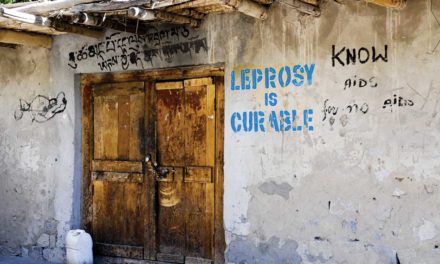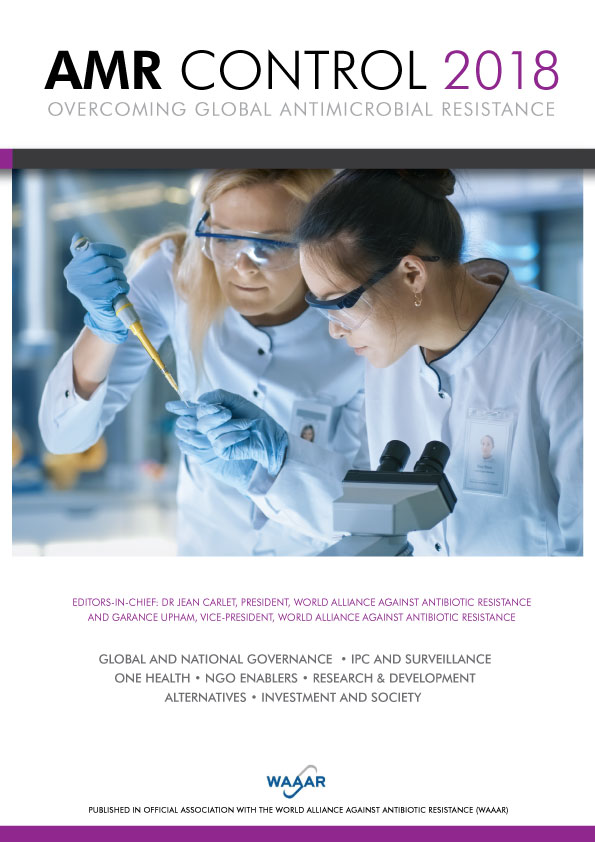Eduardo Cazap, Founder, Sociedad Latinoamericana y del Caribe de Oncología Médica (SLACOM), Buenos Aires, Argentina
Latin America is a region of the world with around 10% of the global cancer incidence and the disease has a significant social and economical impact. SLACOM is a regional medical oncology society focused on collaborating in cancer research, cancer registries and education, as well as partnering with cancer organizations to harmonize efforts and to improve outcomes.
Regarding research, SLACOM has developed an Institute for Cancer Research, focused on independent and publicly funded clinical and translational research. Promoting activities in the region, SLACOM is collaborating with IARC in the area of cancer registries through the Global Initiative for Cancer Registry Development in Low- and Middle-Income Countries (GICR) and has a strong alliance with the recently created Latin American Network of Cancer Institutes – Red de Institutos Nacionales de Cáncer (RINC), to help coordinate and strengthen efforts to prevent and control cancer in the region.
Latin America is a region of the world that has approximately 10% of the global cancer incidence and the disease has a significant social and economical impact.
It is critical to establish for our countries the best possible strategy to face the problem; there are existing resources and the region has different health care systems, variable in organization but with resources generally from government sources (ministries of health, private, provinces, unions or mixed).
The main problem is that the allocation of resources is not well coordinated, with frequent duplications, overlaps or gaps.
SLACOM is focused on collaborating in selected areas such as cancer research, cancer registries and education, as well as partnering with local, regional or international cancer organizations to harmonize efforts and to improve outcomes.
Within this general picture, the founders defined the vision of SLACOM as an organization working for the development of a scientific society acting in cancer prevention, early detection, and proper treatment for patients in our region, focused on following main objectives1:
- To integrate Latin American oncologists more strongly within the global community.
- To develop regional criteria and standards for the prevention, diagnosis and treatment of cancer.
- To promote the growth and subsequent development of cancer research in the region.
- To work as a professional regional oncology organization to partner with sister international oncology organizations.
- To promote and provide continuous education in oncology throughout the region.
SLACOM plans for independent research and publicly funded trials
Clinical research is vital to the development and improvement of methods to prevent, detect and treat cancer.
The majority of clinical trials take place in the developed world through sponsored pharmaceutical company research. The corresponding lack of research in developing countries results in two unmet needs related to cancer treatment in the developing world. First, recommended treatments do not reflect ethnic (genetic), cultural and resource differences between developed countries and developing countries that are not subject to clinical research. Second, there is little research conducted on those cancers that are primarily found in developing countries. Thus the ability to diagnose and treat these diseases is impaired.
This general picture reflects today’s situation globally. It is critical to promote clinical research in developing countries mainly with training of all levels of research professionals (data managers, research nurses, etc.) in a local context, and training on identifying resources to fund research outside of pharmaceutical company sponsorship.
Publicly funded trials will also determine whether interventions found to be effective in other countries are also effective in one’s own country. Health care systems vary from country to country. National populations vary by age structure, co-morbidity, and genetic background. Particularly with the newer generation of biologic agents, we need to establish whether treatment effect or toxicity varies by population genetics2.
In a survey of 100 breast cancer experts from 12 Latin-American countries on clinical research, 94% of the respondents considered that clinical cancer research is insufficient. The main reasons for this were insufficient economic return (68.3%), lack of time (55.7%); lack of structure (50.6%); lack of education (49.4%) and lack of support from the institution (29.1%)3.
Another characteristic of current clinical cancer research in the region, is that it is mainly performed in public institutions (46.8%), public and private (22.1%) and private (16.8%).
Universities and national cooperative groups are practically nonexistent (1.1% for each one) and regional oncology groups are also very infrequent (3.1%), according to the surveyed experts’ estimation.
In addition, clinical cancer research education is generally not included in the medical undergraduate curriculum, There are some ongoing educational postgraduate training tools, but mainly in the form of workshops scheduled for 1–3 days.
SLACOM has developed an Institute for Cancer Research, focused on independent and publicly funded clinical and translational research, running trials in a multinational cooperative way, including researches and sites in many countries of the region. Some National Cancer Institutes are participating in the project. Ongoing studies include Phase 1b trials, randomized Phase II and III studies with a priority in answering questions relevant to our populations and patients.
SLACOM is also opening the first clinical trial in our regions, for breast cancer, supported by independent funding from nongovenmental organizations.
IARC Latin America collaboration
The Global Initiative for Cancer Registry Development in Low- and Middle-Income Countries (GICR) convened by the International Agency for Research on Cancer and backed by several international organizations aims at developing – and creating where needed – the capacity to produce reliable, high-quality information on the burden of cancer so that effective policies for cancer control may be developed and implemented4.
One of the main activities of GICR will be to establish “hubs” – regional resource centres capable of providing developmental support towards and for population-based cancer registries by:
- providing technical and scientific support to countries;
- delivering tailored training in population-based cancer registration and use of data; advocating the development of cancer registration in the region and facilitating setting up associations and networks of cancer registries;
- coordinating international research projects and disseminating findings.
A hub in Latin America is tentatively scheduled to be opened in 2013 –14 and SLACOM is collaborating in this endeavour.
The Latin-American Network of National Cancer Institutes (RINC)
The Latin American Network of Cancer Institutes – Red de Institutos Nacionales de Cáncer (RINC) – was established on 25 July 2011 to help coordinate and strengthen efforts to prevent and control cancer in the region.
The headquarters have been located initially at the National Cancer Institute of Brazil (INCA) in Rio de Janeiro, and it will be rotated periodically.
RINC was officially launched at a one-day meeting of South American health ministers held in Rio de Janeiro on 25 July 2011. Representatives from cancer institutes as well as IARC, IAEA, PAHO/WHO and UICC were also invited to attend the meeting.
The following strategic actions were identified as priorities for RINC:
- development and evaluation of cancer registries;
- training and capacity building;
- strengthening of national cancer institutes in the region;
- projects that address the national cancer priorities of RINC members.
Countries participating in the network are the following UNASUR countries; Argentina, Bolivia, Brazil, Chile, Colombia, Ecuador, Guyana, Paraguay, Peru, Suriname, Uruguay and Venezuela as well as countries from the former Latin-American and Caribbean Alliance for Cancer Control: Cuba, Mexico, Nicaragua and Panama5.
The ongoing projects developed by the RINC and coordinated by working groups are cervical cancer, quality control project in mammography, quality of radiotherapy; biobanking and cancer registries.
Conclusions
It is extremely important to understand that the cancer control concept must be analyzed from a global perspective: it is difficult to develop the necessary actions without regional or international collaboration in order to move projects forward and increase the efficiency of the actions.
The two main goals from which the international community should base any potential action in order to improve cancer control in any possible way are: a) a correct strategy and b) political will.
The projects currently ongoing were developed after a profound analysis of the needs and priorities of our region, so we believe that this strategy is correct. The example of RINC- UNASUR follows the concept of taking advantage of the political will and incorporating the governmental bodies to the regional cancer strategy.
There are numerous national and international cancer organizations, professional societies, volunteer cancer leagues, patient organizations and support groups. Cancer is probably the best organized and supported disease in the world. These existing structures can be used to amplify the efforts of governments in cancer control.
Our region is today one of the good examples of regional organization for better cancer control. Latin America is working coordinately and with leading international agencies to improve a basic component: good data. The new project from IARC is an excellent case.
Cancer research is another critical component and in this sense the promotion of independent research and the launching of regional initiates such as the SLACOM Cancer Research Institute is encouraging.
Finally, the creation of RINC is a model of collaboration between national cancer institutes, working together in a coordinated way and promoting better cancer control in the region. This model should be extrapolated to other regions of the world. l
Eduardo Cazap is Past-President, Union for International Cancer Control (UICC), Geneva, Switzerland and the first President and founder of Sociedad Latinoamericana y del Caribe de Oncología Médica (SLACOM), Buenos Aires, Argentina. He is also Chairman of the Executive Committee, Breast Health Global Initiative (BHGI), Seattle, and a member of the Executive Committee, National Cancer Institute of Argentina (INC), Buenos Aires, Argentina.
References
2. Improving cancer outcomes through international collaboration in academic cancer treatment trials. Trimble EL, Abrams JS, Meyer RM, Calvo F, Cazap E, Deye J, Eisenhauer E, Fitzgerald TJ, Lacombe D, Parmar M, Seibel N, Shankar L, Swart AM, Therasse P, Vikram B, von Frenckell R, Friedlander M, Fujiwara K, Kaplan RS, Meunier F.J Clin Oncol. 2009 Oct 20;27(30):5109-14.
3. Cazap et al, Cancer. 2008 Oct 15;113(8 Suppl):2359-65.
4. http://gicr.iarc.fr/ Last access June 27, 2012.
5. http://www2.rinc-unasur.org Last access June 27, 2012





